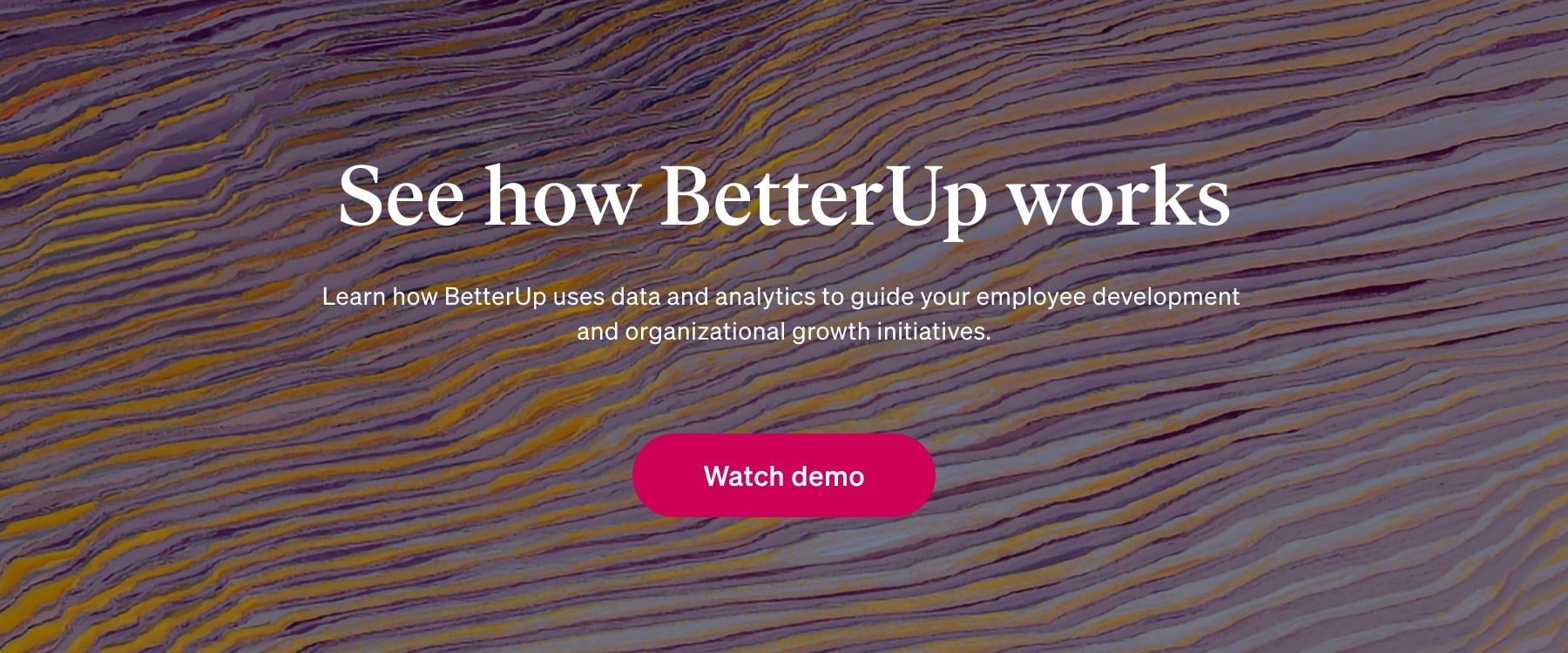-
For Business
For Business
Products
LeadBuild leaders that accelerate team performance and engagement.
Care™Drive productivity through sustained well-being and mental health for all employees with BetterUp Care™.
Solutions
Sales PerformanceTransform your business, starting with your sales leaders.
Diversity & InclusionFoster a culture of inclusion and belonging.
Customers
Case StudiesSee how innovative companies use BetterUp to build a thriving workforce.
- For Individuals
-
Resources
Resources
LibraryBest practices, research, and tools to fuel individual and business growth.
EventsView on-demand BetterUp events and learn about upcoming live discussions.
BlogThe latest insights and ideas for building a high-performing workplace.
ResearchInnovative research featured in peer-reviewed journals, press, and more.
- About
Emotional regulation and peak performance: What's the connection?

When people are not doing well emotionally, they can’t perform well. The reason: human motivation is tied to a hierarchy of needs.
The world has been changing rapidly. Many organizations are feeling the pressure to deliver financial returns while making significant changes to the way they work and do business. In an ideal world, all of your employees would perform at their peak, every day, to help navigate this pressure and uncertainty.
Peak performance means that your people are doing their best work. “Best” probably looks different for each person. But, broadly, someone performing at their best is meeting commitments and able to direct their focus to get important work done. They are showing up with energy and working effectively with others. They are able to switch gears, and rolling with unexpected changes or setbacks.
But when people are not doing well emotionally, they can’t perform well. Personal motivation becomes secondary when we are struggling on the inside.
The reason: human motivation is tied to a hierarchy of needs. An employee’s ability to perform their best work will be hampered if basic needs (safety, security, belonging, self-esteem) are not met.
Motivation aside, it’s a lot harder to work with others, stay focused on a task, or recognize productive alternatives when we’re roiled by powerful emotions. Employees simply can’t perform at their best if they are overly stressed or if any foundational human needs are threatened.
To get more of the workforce performing at their best more often, organizations can help employees develop the psychological and emotional bandwidth to direct resources toward high achievement and innovation.
We’ve seen this in recent events. The pandemic, social and political unrest, and national tragedies all threatened our basic human needs and put a spotlight on the fundamental interconnectedness of our emotional states and work performance. But the concept is evergreen: less dramatic events and interactions disrupt our emotional state every day and can derail performance.
Emotional regulation is defined as the ability to maintain healthy emotional states and stay calm and collected through stress.
When we help people build skills in emotional regulation, it unlocks their ability and energy to focus on doing their best work.
BetterUp set out to explore whether there is a correlation between emotional health and performance. Specifically, we wondered whether leaders with strong emotional regulation fared better in terms of common performance metrics.
What the data say -- what is the impact of emotional health?
We examined 2.6K BetterUp Members and their direct reports to understand how leaders strong in emotional regulation skills compared in performance, agility, and goal attainment, to those with the lowest levels of emotional regulation.
Overall, Members who have strong emotional regulation skills have 153% higher team performance as rated by their direct reports. They are also rated 24% higher for team agility by their direct reports. Additionally, these leaders themselves report 13% higher rates of goal attainment.
Why it matters
Overall, when employees have emotional regulation skills, we see higher scores on markers of achieving peak performance.
This is not a causal conclusion. Yet, the evidence does suggest that emotional thriving coincides with more favorable outcomes. A psychologically healthy workforce has real value to the business and failing to recognize that could be a real competitive disadvantage.
When employees build skills that help them manage emotions — and their inner lives — better, it doesn’t just feel like the right thing to do. It may also be the key that unlocks the peak performance levels that companies are looking for and need.
Erin Eatough, PhD
Sr. Insights Manager





